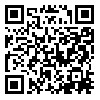Volume 2, Issue 2 (2021)
san 2021, 2(2): 111-139 |
Back to browse issues page
Download citation:
BibTeX | RIS | EndNote | Medlars | ProCite | Reference Manager | RefWorks
Send citation to:



BibTeX | RIS | EndNote | Medlars | ProCite | Reference Manager | RefWorks
Send citation to:
Karimifard G, Khalili P, Bavanpouri M. A Psychoanalytical Reading of The Game of Forgetfulness. san 2021; 2 (2) :111-139
URL: http://san.khu.ac.ir/article-1-171-en.html
URL: http://san.khu.ac.ir/article-1-171-en.html
Associate Professor, Department of Arabic Language and Literature, Shahid Chamran University of Ahvaz, Ahvaz, Iran. , gh.karimifard@scu.ac.ir
Abstract: (2286 Views)
Within the pasr few decades, psychological criticism has become an integral part of literary criticism, paving the way for a proper understanding literary texts. The analysis of authors’ emotional and psychological condition is of prime significance in this regard. Sigmund Freud, the founder of modern psychology, postulated three levels of human awareness: the preconscious, the conscious, and the unconscious which are tinged with sexual and aggressive impulsesThe psychological make up is composed of the ego, the id, and the super ego which constitute the core of an individual’s personality. The Game of Forgetfulness (1987) is one of the most important novels written by Muhammad Barada and has been subject to numerous studies by scholars from various fields. This paper studies the presentation of grief and psychological conflict in characters’ social relations. The main theme in the novel concerns the psychological condition of some family members after the death of their mother, and the problems and difficulties they meet in the society. A psychological analysis sheds light on their preocupation with depression, grief, psychological conflict, and nostalgia which are symptomatic of Barada’s society. The characters suffer from obsessions, ailments, and anguish caused by disasters and mischeifs
Keywords: Psychological criticism, Freud, game of forgetfulness, Muhammad Barada, Arabic Narratology
Send email to the article author
| Rights and permissions | |
 | This work is licensed under a Creative Commons Attribution-NonCommercial 4.0 International License. |







